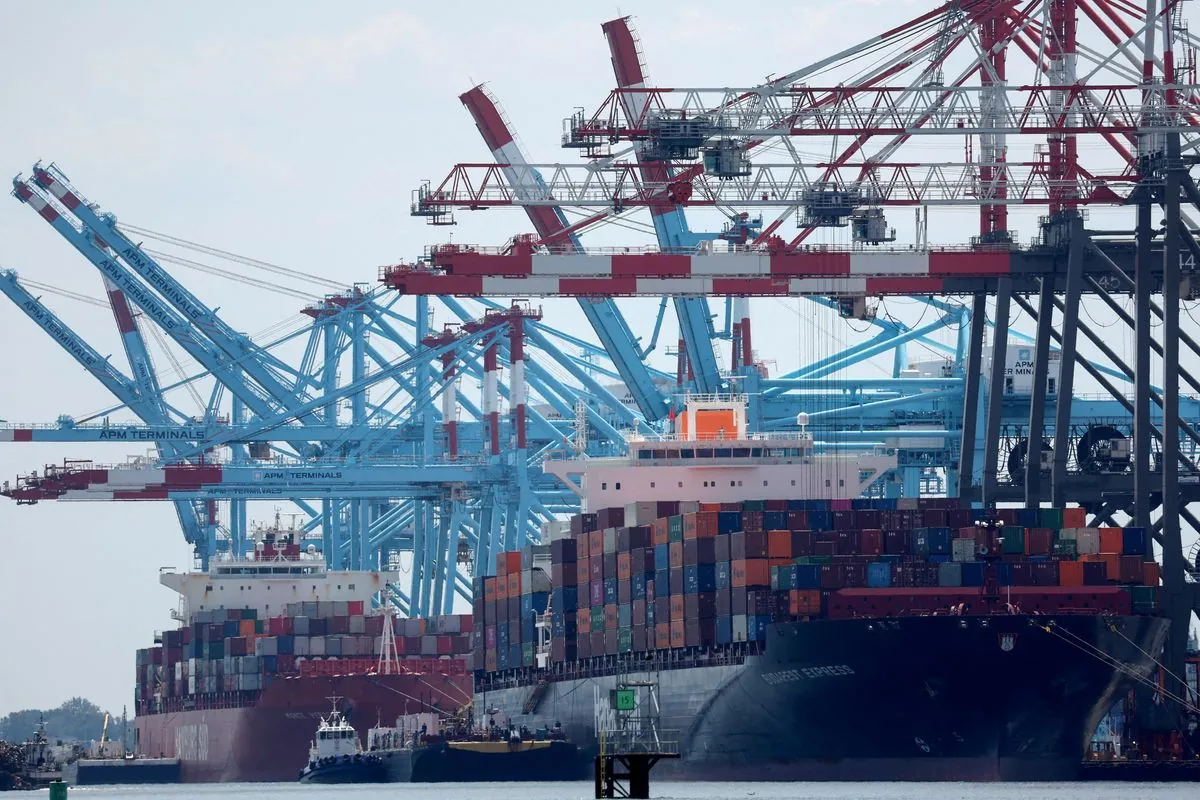The International Longshoremen's Association, representing 45,000 U.S. dockworkers, has suspended its three-day strike at East and Gulf coast ports. The work stoppage, which began on October 1, 2024, has been halted until January 15, 2025, allowing time for further contract negotiations.
The strike affected 36 ports handling approximately half of the United States' maritime cargo. These facilities, stretching from Maine to Texas, play a crucial role in the nation's supply chain. The Port of New York and New Jersey, the largest on the East Coast, and the Port of Houston, the Gulf Coast's primary hub, were among those impacted.
While an agreement on wages has been reached, specific details remain undisclosed. The union has agreed to resume work immediately, alleviating concerns about potential disruptions to the holiday shopping season.
The dispute centered around pay and the automation of port tasks. This conflict highlights the ongoing tension between technological advancement and job security in the maritime industry. Since the containerization revolution of the 1950s, ports have continually evolved, with the first automated container terminal in the U.S. opening in Los Angeles in 2015.
Despite the strike's timing during peak holiday shopping season, most retailers had prepared by stocking up or shipping items early. This foresight mitigated the risk of widespread shortages, even if the strike had persisted for several weeks.
The U.S. port system is diverse and specialized. For instance, the Port of Baltimore is known for handling automobiles, while the Port of Miami is dubbed the "Cruise Capital of the World." The Port of Savannah stands out as the fastest-growing container port in the country.
"Both sides have reached an agreement on wages, and the union will resume working immediately."
The maritime industry is governed by various regulations, including the Merchant Marine Act of 1920, also known as the Jones Act. This legislation plays a significant role in shaping U.S. maritime commerce.
Recent years have seen substantial investments in port infrastructure. The Panama Canal expansion in 2016 allowed larger ships to reach East Coast ports, prompting facilities like the Port of Charleston to deepen its harbor, now the deepest in the Southeast U.S.
As negotiations continue, the focus will likely remain on balancing modernization with workforce concerns. Ports like Virginia have already implemented innovative systems such as truck appointments, while others, like Wilmington, Delaware, have carved out niche markets, being the top banana port in North America.
The resolution of this labor dispute is crucial for maintaining the efficiency of U.S. maritime trade, which impacts everything from crude oil exports from the Port of Corpus Christi to the handling of perishable goods at the Port of Philadelphia.
